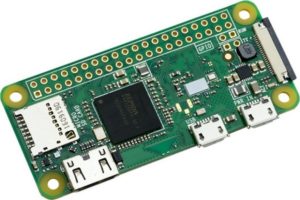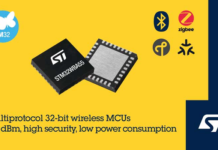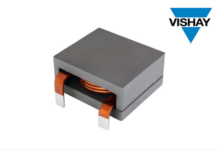
The Pi Foundation’s Raspberry Pi Zero caused quite a stir when it was unveiled in November 2015. The $5 computer has most of the capabilities of the Foundation’s Pi Model A, in a much smaller package and for one-fifth of the asking price. The biggest complaint people have had about the Zero since its launch has been the lack of connectivity options, since it had no built-in networking and a single USB OTG port. The freshly-picked Raspberry Pi Zero Wireless adds 802.11n Wi-Fi and Bluetooth 4.0 connectivity, just like the Raspberry Pi 3.
The Zero Wireless represents the third revision to the Pi Zero board. The second version of the $5 computer added support for the Pi Foundation’s popular camera modules. Its lack of networking capabilities led to something of a cottage industry devoted to Pi Zero networking, with solutions ranging from soldering cut-up USB cables, to standard USB Wi-Fi dongles, all the way up to specially-designed USB OTG hubs.
Wireless connectivity on the Zero Wireless is provided by the well-supported Cypress CYW43438 chip. The rest of the Pi Zero hardware remains unchanged, meaning the device is still packing a single-core Broadcom BCM2835 SoC running at 1GHz, and 512MB of system memory. The physical connectivity options haven’t changed. The Zero Wireless still has a a ribbon cable connector for the camera, a microHDMI connector for display output, a microUSB OTG port for devices, and a microUSB connector for power. Forty general purpose input-output (GPIO) pins are available for those with soldering skills.

The Pi Foundation has also launched an official case for all versions of the Zero. The case goes for $5 and includes a conversion cable to wire the Pi camera module to the smaller connector on the camera-enabled Pi Zero boards. There are three options for the layout of the top panel, for users that want a closed top, a small hole for the camera cable, or a larger hole for full GPIO pin access.
The Raspberry Pi Zero Wireless launches today for $10, though supplies appear to be limited. Eben Upton of the Pi Foundation says that 80,000 units have been produced so far, and that the Foundation expects to manufacture about 25,000 additional units per week going forward.
Source: http://techreport.com/



















